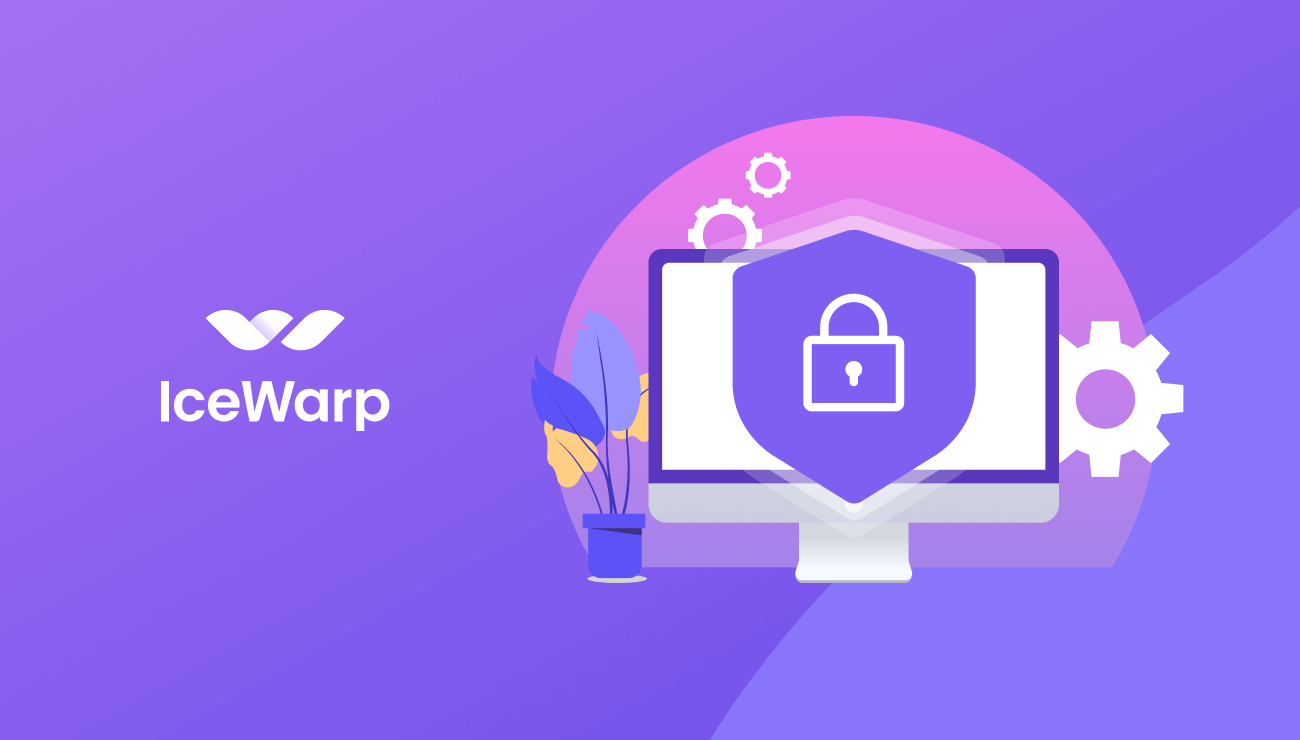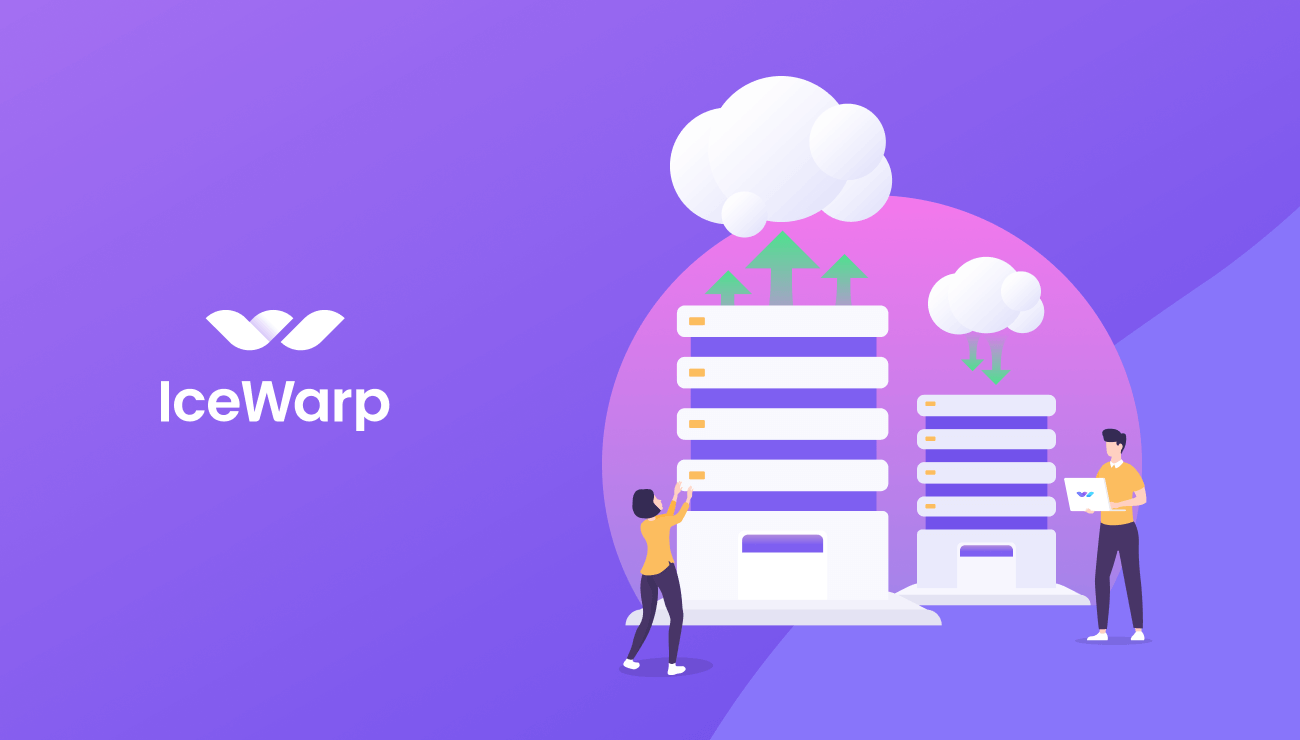IceWarp – The Perfect Balance Between Open & Closed Source
In today’s market, you’d be hard-pressed to find any business not trying to use free online tools to better their workflow, get a leg up on the competition, and improve profits. And the first place many people look to is open-source software. But what exactly does “open source” mean, and does it have any (dis)advantages?
What is Open-Source Software?
To ensure we’re all on the same page, let’s get to know the term “open-source” a little more.
As the name gives away, open-source software is just that: open. Or, in other words, FREE.
But if we want to be more specific, open-source software is “computer software that is released under a license in which the copyright holder grants users the right to use, study, change, and distribute the software (and its source code) to anyone and for any purpose”. Open-source software often consists of crowd-funded projects that companies and individuals alike can use however they please, completely free of charge.
It almost sounds too good to be true, right? Someone’s actually working hard, creating their own software, only to release it to the open arms of the internet for everyone… and for free? Well, that’s exactly what’s going on. But does that mean there are also 100% free versions of business tools like Microsoft 365, Google Workspace, and even IceWarp? And if so, why should users ever pay for something they can find online for free?
A Few Stumbling Blocks
These are all excellent questions, and frankly, the answer to the first one is ‘yes’. There are business tool alternatives to paid services that are entirely open source. And the open-source community is thriving where both creators and users work together to build upon the original source code.
But as for the second question, there are quite a few advantages to opting for a paid service instead of taking the open-source route. Although there are many examples, here are three of the most prevalent issues with open source today:
- License and software changes
- Security risks
- Work-in-progress, unfinished
License and Software Changes
One point you often see when a company is considering implementing open-source software is the desire to avoid “vendor lock-in”. Vendor lock-in happens when a client is so dependent on a vendor for a specific product or service that they cannot switch to another without suffering substantial migration costs.
The idea is that you can spare your company the risk of becoming too reliant on a provider by simply selecting open-source software. And in some cases, this could work. The main issue users face, however, is that just because open-source software is “open” doesn’t mean the creator won’t make fundamental changes to the license (maybe choosing to close it altogether).
It’s also possible they’ll run out of funds and be forced to completely stop supporting the technology, leaving you scrambling for a replacement. In an effort to avoid being overly dependent on one provider, you could easily end up being just as susceptible to unpredictable, business-ending software or licensing changes.
At IceWarp, we take this issue very seriously. That’s why we provide customers with liabilities and contracts, while also offering governments the opportunity to sign a special agreement, in which they actually receive the source code to use as they deem acceptable.
Security Risks
The second concern regarding open-source solutions is their inherent lack of security. And that’s not because the software developers aren’t talented enough to implement sufficient security measures.
The real problem comes from the software being open to literally everybody. Let’s say your business finds some open-source software online and quickly adopts it into its system. Even if some changes are made to the software and additional safety blocks installed, anybody else online can just as easily download the same software and learn how your company works from the inside out.
It’s almost as if open source’s largest benefit is also its greatest detractor. At IceWarp, we believe it’s in the client’s best interest to use software that’s kept well-guarded and classified. Remember, if that software was open to you, then it’s also open to hackers, disgruntled customers, and even your biggest competitors.
Work-In-Progress, Unfinished
The third and final complication tied to open-source solutions was actually mentioned earlier. Creators of open-source software often leave their creations open because they simply aren’t finished yet. They hope other developers will jump in, and everyone can work together until the software meets its highest potential.
This is an excellent display of teamwork and a big part of what makes the open-source community so unique. But it does cause potential issues for those looking to apply a certain piece of incomplete open-source software in their business. And those issues are only compounded if nobody in your team fully understands the software or is able to complete it themselves.
Here at IceWarp, we often take inspiration from the world of open-source software, even opting to use some in our framework. For example, we integrated the open-source video conferencing software Jitsi into our business tool. But what’s important is that we’ve since customized it until it could work seamlessly with the IceWarp app. In some cases, open-source materials may be “finished”, but they still need to be adjusted until they’re fully optimized to your company’s needs.
IceWarp and Open Source
Open source is a topic that we could go on and on about. With innovations being made every day, you never know what solutions you’ll find online tomorrow. Every day, we strive to be “in the know” and up-to-date on all improvements made in the open-source community. We’ve even donated upwards of 400,000 EUR to specific software projects we found compelling.
But even with all its advantages, open-source software still presents many challenges. That’s why IceWarp can be seen as a hybrid of both worlds: an IceWarp subscription is half the cost of products offered by the likes of Microsoft or Google and comes with all the much-needed security and useability that open-source solutions often lack.
But don’t take our word for it. Feel free to do your own research and maybe even give some free software a try. We’re confident in our work, and we know you’ll arrive at the same conclusion as we have. When it comes to a quality business tool provider, it’s sometimes better to invest in something small than risk the drawbacks that come with paying nothing at all.
Post a Comment
You must be logged in to post a comment.




